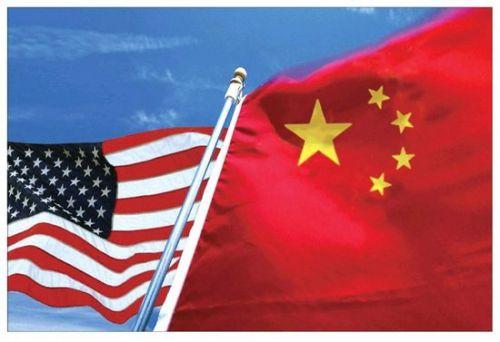
NEW YORK, Aug. 12 (Xinhua) -- The U.S. government's threat to investigate China's trade practices is "politically expedient" and the unilateral move will harm mutually beneficial China-U.S. trade ties and ultimately hurt the American consumers, experts said.
U.S. President Donald Trump will sign an executive order asking his trade office to consider investigating China for the alleged theft of U.S. technology and intellectual property, an administration official said Saturday.
It has been two weeks since media first reported that Trump has been mulling such an investigation under the 1974 Trade Act's Section 301, which allows the U.S. president to unilaterally impose tariffs or other trade restrictions on partner countries.
IT HURTS AMERICA IN THE LONG RUN
The Trump administration has repeatedly attributed the country's economic slowdown and job losses to trade deficits with major trading partners including China and Mexico and vowed to change the situation by imposing tariffs and other non-tariff trade barriers if necessary.
"That will not solve America's economic problems and probably in the long term will make it worse," Robert Lawrence Kuhn, a leading China expert, told Xinhua in a recent interview. "And the reason is because there are these natural economic principles that you're violating by heavy tariffs."
"It helps a few Americans for a short term, a decade or more," Kuhn said, "But over the long term, it hurts America because it prevents the transformation of industry into industries that are more sustainable...It's like going backwards to try to protect something that is not protectable in the long term."
Such tariffs are politically expedient because Trump "sort of promised that" to his supporters in the manufacturing-dependent mid-west U.S. states, which have seen great job losses in the past decade, Kuhn noted.
The loss of U.S. manufacture jobs, as pointed out by Edward Alden, a senior fellow at the Council on Foreign Relations, in his new book "Failure to Adjust," was more about automation that increases productivity of remaining factories in the country, which meant fewer workers working in factories.
"The problems will not be solved by bashing China," Kuhn said, "They will be solved by reeducation (of workers) over the long term, so that these people can have different kinds of, new kinds of jobs."
If there were no Chinese goods coming to the United States, prices of consumer products would go much higher and the consumers will suffer, said Kuhn.
Trade with China helps each American family save 850 dollars every year, according to China's Ministry of Commerce. From lamps to birthday candles, from flip-flops to mouse traps, "Made in China" goods have long become an indispensable part of everyday life for many U.S. households.
WTO MECHANISM MORE EFFECTIVE IN SOLVING TRADE DISPUTES
Many experts have voiced concerns over the U.S. government's plan to invoke Section 301, a trade tool frequently used by Washington before the World Trade Organization (WTO) came into existence.
In general, trade disputes among WTO members should be resolved through the WTO mechanism, not based on a member's domestic law, said Zhiqun Zhu, a professor of political science and international relations at Bucknell University in the U.S. state of Pennsylvania.
"Even if China has problems with intellectual property rights, the use of Section 301 to punish China will make people think that the United States puts its domestic rules above international law, which will further tarnish the country's international image," Zhu said.
"If the United States slaps unilateral sanctions, China will certainly make a tit-for-tat retaliation. In the end, consumers and businesses in both countries will suffer," he said.
"It's a lose-lose option. In an age of globalization and interdependence, it is hard to believe that some people still think economic sanctions will solve trade problems," Zhu added.
While noting that intellectual property is "a legitimate area of concern" in U.S.-China trade, the U.S. side should also see China's notable progress in protecting intellectual property, said Kuhn.
"The countries (involved) really have to restart WTO negotiations and make genuine concessions," Alden told Xinhua in a recent phone interview.
It is a lesson "we have learned from history again and again," Alden said, "The only way to resist protectionism is to have international negotiations to address concerns."




 A single purchase
A single purchase









